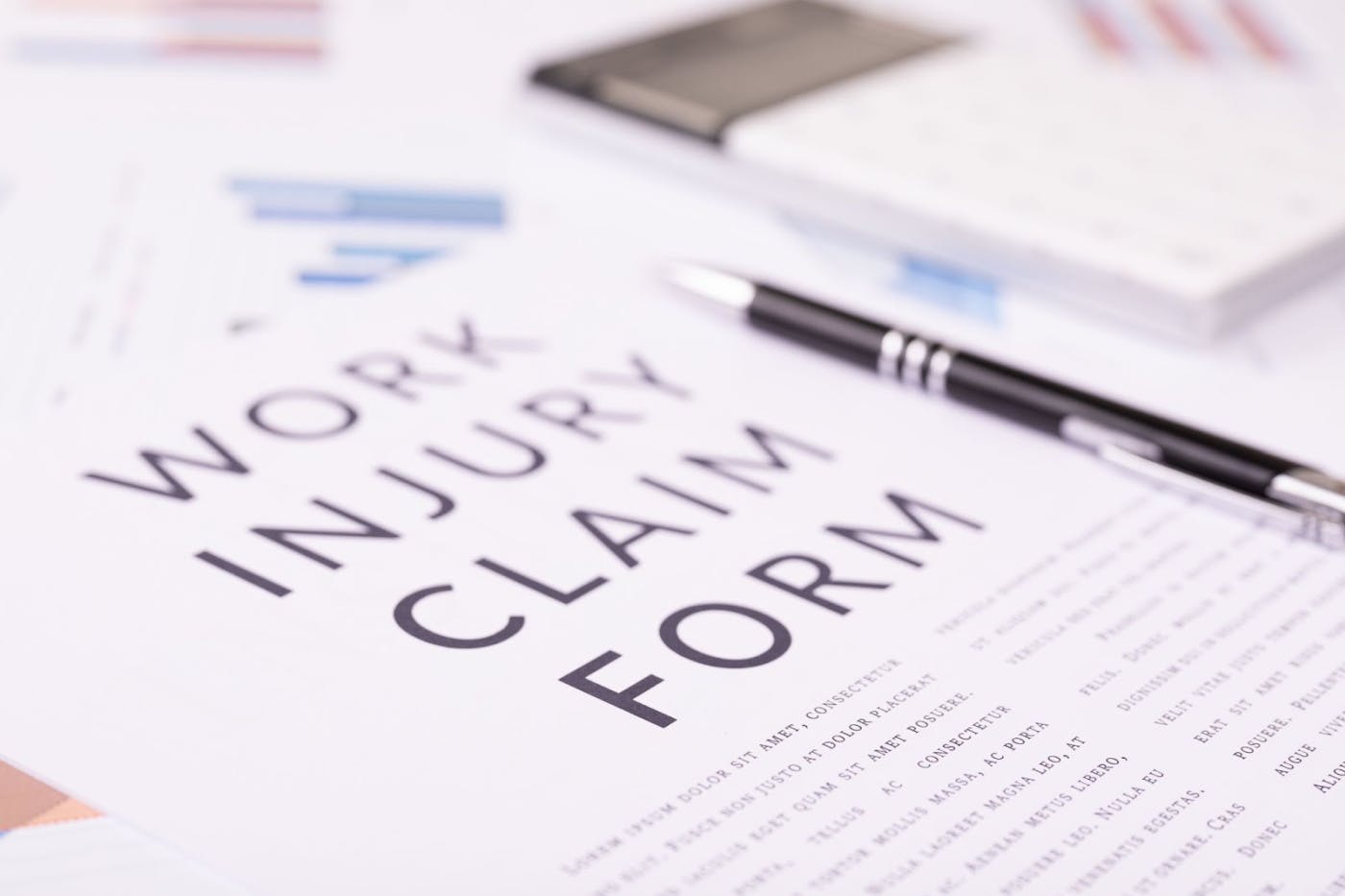Workplace Injury: Do I Have a Claim?

If you are injured on the job, you are entitled to the protection of Minnesota’s workers’ compensation law. It doesn’t matter if you or your employer were at fault for the injury. Medical expenses, wage loss, and other benefits are automatic if the injury occurred in the course and scope of employment.
Most employers and their workers’ comp insurance companies in Minnesota follow through promptly and provide the required benefits to an injured employee. However, some companies and workers’ comp insurers will try to downplay or deny work comp claims. That’s when you may need help from an experienced workers’ compensation attorney.
So, how do you file a claim for workers’ comp after an injury? And how do you know if you are being denied the benefits you deserve? Let’s take a look.
What Counts as a Workplace Injury?
A workplace injury includes any injury or illness caused by job-related duties. In the words of the Minnesota Department of Labor and Industry:
“A work-related injury can be any condition that is caused, aggravated, or accelerated by the employment activities.”
For example, if you are injured while working with machinery or power tools, that would likely qualify as a workplace injury. Slipping and falling on a hazard in the breakroom could count, too. Even hurting yourself at a hotel while on a business trip can qualify.
Other common workplace injuries include:
- Muscle or joint injury from repetitive motions
- Work-related motor vehicle accidents
- Burns caused by working with hot objects, fire, or electricity
- Exposure to toxic chemicals or hazardous materials
Establishing Liability: Do You Have a Case?
Under Minnesota law, workers’ compensation is a no-fault system, meaning you don’t need to prove your employer was negligent to receive compensation. To have a viable claim, you only need to confirm that the injury arose out of, and in the course and scope of your employment.
What Is Fair Compensation for a Workplace Injury?
Workers' compensation aims to reimburse you for the medical expense and wage loss that your accident has caused (and will cause).
- Medical costs
- Lost wages
- Lost earning capacity
- Permanent Partial DIsability
Proving Your Claim
You may have to prove that your injury was work-related to receive the compensation you're owed. To do that, you’ll need evidence to support your claim, such as:
- Medical records
- A written report of the accident and injury
- Photos of the injury and accident scene
- Surveillance camera footage
- Eyewitness statements (possibly from your coworkers)
Your attorney will help you gather and catalog this evidence.
Reasons Your Employer Might Deny Your Claim
Once you’ve requested workers’ compensation, the workers’ compensation insurance company may try to deny the claim. They may give any number of reasons, such as:
- You aren’t eligible for workers’ compensation
- The injury wasn’t work-related
- You waited too long to report the injury
- There is no record establishing the injury was caused by work
- You have a pre-existing condition which is the cause of disability
Too often, these reasons are just an excuse to keep from paying you what you’re owed. Always talk to a lawyer before giving up on a claim.
Workplace Injury Statute of Limitations (Minnesota)
Minnesota has a series of deadlines for reporting a workplace injury.
- Generally speaking, you have 14 days to report the injury after the accident to be eligible for workers' compensation. It is best to report it RIGHT AWAY.
- If you wait longer than 14 days but less than 30 days, you can still receive compensation unless your employer shows that your delay harmed them somehow, but then only to the extent of the harm caused. Practically, a report must be made within 30 days.
- If you wait longer than 30 days but less than 180 days, you CAN only receive compensation if you show that your delay resulted from an honest mistake about the facts or law on your part or dishonesty on the part of your employer.
- If you wait longer than 180 days, you CANNOT receive compensation unless your delay was caused by incapacitation of some sort (e.g., you were in a coma).
Bottom line: report a workplace injury to your employer immediately. But note that there are exceptions to these rules. If you didn’t report an injury within these deadlines, your attorney will review the facts and help you determine if you are still eligible for workers’ compensation.
What to Do If You Are Injured on the Job
If you’ve suffered a workplace injury, there are a few steps you can take to protect your health and increase your chances of receiving fair compensation.
- Seek medical attention right away. You should do this even if you don’t think your injury is very severe.
- Report the injury to your manager, employer, or other appropriate figure as soon as possible.
- Make sure the report was logged. Ask for a copy from your employer, often called a First Report of Injury.
- Keep records of your injury, including photos, medical bills, doctors’ statements, and communications with your employer.
- Contact a workers’ compensation attorney who can explain your rights and help you take any necessary next steps.
Workplace Injury FAQs

What if my employer doesn’t have insurance?
In Minnesota, almost all employers are required to carry workers' compensation insurance. If yours does not, you can file a claim with the state who would then pay the claim, and then seek contribution from the employer.
What if I didn’t sign up for workers’ compensation insurance?
Workers’ compensation is not a discretionary benefit in Minnesota. You don’t have to sign up for it. In almost all cases, it is your automatic right as soon as you are hired. There can be problems for self-employed persons where workers’ compensation insurance must be specifically elected to cover the owner.
Can I be fired for filing a workers' compensation claim?
No, it is illegal for your employer to fire you solely for filing a workers' compensation claim. If you face retaliation, such as termination or harassment, after filing a claim, you may have grounds for a wrongful termination lawsuit.
What if my injury prevents me from working?
Your employer must help you find a job you can do with compensation roughly the same as your previous job. If there are no jobs available with your employer that you can do, training benefits are available that can help you start a new career. If your injury prevents you from working at all, you can receive permanent disability benefits.
What if my employer didn’t cause my injury?
Under Minnesota law, you don’t have to prove that your work injury was only caused by work, but rather that your work activity was a substantial cause.This often arises in the context of older workers who aggravate a pre-existing condition making them unable to work, or cause them to seek medical care.
What if the injury was my fault?
Because Minnesota has a no-fault workers’ compensation system, your employer cannot deny your claim even if your negligence caused your injury. The only exception to this is if the injury was a result of clear misconduct, such as being intoxicated on the job or assaulting another employee as a result of a personal conflict, for example..
Can I choose a doctor to treat my workplace injury?
Minnesota generally grants employees the right to choose a healthcare provider to treat their injury. However, your employer or its insurance company may have a list of approved providers. Check with your employer about their specific policies.
What if my workers’ compensation claim is denied?
You can contest the decision if your workers' compensation claim is denied. To do this, you should:
- Review the denial notice to understand why the claim was denied (or follow up with your employer if it isn’t clear).
- Gather or retain any evidence you have to support your claim.
- Speak to a workers’ compensation attorney for advice.
Can I file a lawsuit against my employer outside of workers' compensation?
In nearly all cases, workers' compensation is the only option for seeking compensation for a workplace injury against your employer. However, exceptions exist, such as if the employer's intentional actions caused the injury. You may also be able to seek additional compensation through a third-party lawsuit if someone not associated with your employer caused the injury.
So – Do You Have Grounds for a Workplace Injury Claim?

To determine whether you are eligible for workers’ compensation, you only need to answer one question: was your injury work-related? If the answer is yes, you likely have grounds for a claim.
If you think you might have grounds – or are unsure – schedule a free consultation with an attorney to determine whether you have a case.
SiebenCarey Can Help!
If you’ve suffered a work-related injury, SiebenCarey can help you receive the full compensation you’re entitled to.
SiebenCarey is Minnesota's oldest personal injury and workers’ compensation law firm, with 70 years of experience helping injured workers get the financial support they need. With the SiebenCarey team in your corner, you’ll have the full benefit of:
- Decades of proven success in settlement negotiations and jury trials
- Comprehensive legal resources
- A fully staffed team of experienced lawyers, paralegals, and in-house investigators
- Unflinching commitment to the “Know Your Rights” promise of personal care and communication
And because attorney fees in workers’ compensation cases are set by state law and paid by the insurance company, you can afford to hire an accomplished attorney.
Reach out today, and we’ll happily answer all your questions!











